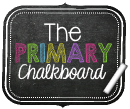Now that's a title for ya'...quite a mouthful right?!!? Are your administrators training you in academic conversations or having you encourage your students to 'talk' more?
It's Vicky here from Teaching and Much Moore sharing my thoughts on this. My district implemented this a few years ago and I do believe I'm a better teacher for learning about it and using it. At first it felt awkward and I was afraid I would 'lose' my class ( especially those classes with tough behavior ). But through the years and a grade change as well I have become so comfortable with it and it has become second nature to me. More importantly it has become second nature to my students.
It's Vicky here from Teaching and Much Moore sharing my thoughts on this. My district implemented this a few years ago and I do believe I'm a better teacher for learning about it and using it. At first it felt awkward and I was afraid I would 'lose' my class ( especially those classes with tough behavior ). But through the years and a grade change as well I have become so comfortable with it and it has become second nature to me. More importantly it has become second nature to my students.
In our district they were having us focus more on having the students respond to our direct teaching rather than giving them prompts which I think both are important. It sounds funny but part of having the academic conversations includes teaching your students how to 'talk' to each other. For instance when responding put part of the question back in the text.
My friend Christina and fellow Chalkie has a wonderful resource that can help your students with this exact concept. You can check it out { here }
My friend Christina and fellow Chalkie has a wonderful resource that can help your students with this exact concept. You can check it out { here }
I love this ~ especially as an introduction to the whole shift in getting little learners to talk more.
I created an anchor chart that reminds my students about key ideas: * building on others ideas means you are being a good listener
* repeat or paraphrasing is a great life skill and shows you are a good listener.
*asking questions is always important too
I think it's important to start small when introducing this and I always make sure that my students understand it's EQUALLY or even more important to be a good listener. Listening and paying attention to their peer is very important so that they can respond properly. One way to reinforce this is something my friend Tammy came up with called the TALKING STICK. I'm sure it's been on the web before but she created these and we laminated them and gave them to our students. When you have the talking stick it's your turn to talk and the one that doesn't have it just has to look at the person and listen.
I love how another awesome Chalkie friend Meg provides prompts in her pack on this very topic:
You can grab her pack { here }
This one is great because it's for older learners ~ Meg's pack offers prompts on a variety of high interest topics that is helpful to get the students practicing this all important skill.
The main idea here is to get your students to collaboratively talk to one another. Sharing their ideas and responding to text helps them to sort out their own thinking processes. Listening to another peer helps them form their own opinion on a topic, do they agree with their classmate on this topic or not and why? They begin to form their own thoughts and opinions and they will learn to voice it in an appropriate way with lots of modeling by you and practice. This is a very important 21st Century life skill for sure!
My academic conversation pack includes conversation disks which are similar to cards, it also includes conversation starters and a die to roll as well.
If you are interested in my pack you can grab it { here }
Building their oral language skills and learning problem solving skills within their day is such an awesome ability to have in life. Another important part of teaching this is THINK TIME. It's important when modeling this to actually stop and be quiet in front of your students for a bit to show that you are using think time and that's perfectly fine. We can't expect our students to learn this skill if they don't have proper think time to process how to respond etc.
Try this concept out in your class and tell us how it goes. We can't wait to hear from you!
xox, Vicky
Find me here:








